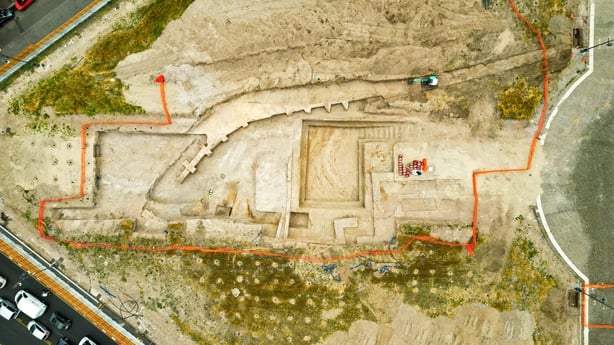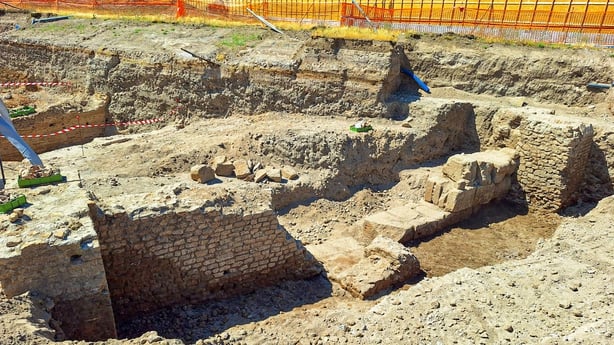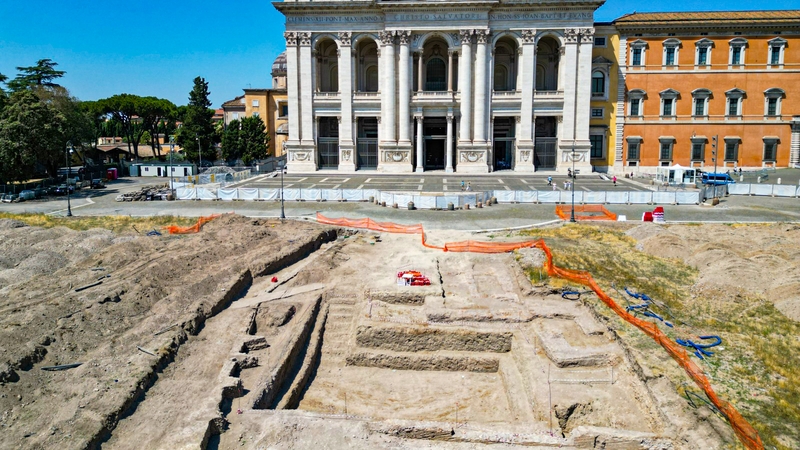The remains of what appears to be a medieval palace where popes lived before they made the Vatican their home have been excavated in Rome.
The excavations are part of renovations for the 2025 Catholic Holy Year, or Jubilee, the Italian Culture Ministry said.
Archaeologists in the square outside the Archbasilica of St John Lateran in the city centre unearthed a complex architectural structure including walls believed to have protected the Patriarchio, a monumental basilica envisaged by Emperor Constantine in the 4th century.
"This is an extraordinarily important find for the city of Rome and its medieval history, as no extensive archaeological excavations have ever been carried out in the square in modern times," the ministry said.

The initial structure of the building, which follows Constantine's declaration of tolerance for Christianity in the Roman Empire in 313, was expanded in stages between the 9th and 13th centuries and housed the papacy until 1305 when it temporarily moved to Avignon in France, the ministry added.
The area around St John Lateran is being spruced up ahead of the Jubilee, a year-long event starting in December that is expected to attract more than 30 million pilgrims and tourists to the Italian capital.
During a Jubilee, Catholics can obtain special indulgences, or remission of their sins, if they fulfill certain conditions and do good works or make pilgrimages.

Rome's long history, stretching back almost 2,800 years, means that roadworks often lead to archaeological discoveries.
Other excavations near the Vatican to extend a road tunnel ahead of the Jubilee have in recent weeks revealed traces of an ancient Roman "fullonica", or laundry, and a porticoed garden believed to have been used by Emperor Caligula.
